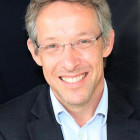Boardroom Dialogues
"Was I Right in My Choice?" - Cognitive Dissonance of First Year Graduate Students: How Could Universities Respond in Non-remote and Remote Recruiting
Date Friday, Dec 3 Time – Room: Chess
First-year students are a sensitive group for university marketers. If left alone with their worries and feelings of mental discomfort with their decision (i.e. cognitive dissonance), they might spread negative word of mouth, or leave, or demotivate their fellow student friends.
If Higher Education institutions are serious about deep change and growth in turbulent times, we must address the fact that some of our students will experience CD related to their choice of studies.
Is there a difference between remote and non-remote students? Does resilience play a role? Based on the outcomes of a study which has investigated first year university students’ CD with their decision of commencing studies at a certain university, we will discuss causes and remedies in this session.
Outcomes:
- Knowledge about causes of CD amongst first year students/freshmen which will help university recruiters in the marketing of their offerings.
- Knowledge about its remedies such as avoiding "over-promising", credible testimonials and the engagement of faculty members in online as well as remote recruiting is essential: faculty members and programme directors play a pivotal role in reducing CD of first-year students.

Andreas Zehetner
Vice President International Relations, University of Applied Sciences Upper Austria, Austria
Andreas Zehetner is Vice President International Relations and professor of marketing at the University of Applied Sciences Upper Austria. As VP International he is responsible for global student recruiting and university partnerships.
He teaches cross-cultural marketing and global business at the School of Business&Management of his institution as well as at other universities, among them the University of International Business and Economics in Beijing, the Concordia University Wisconsin in the US, or the St. Petersburg State Polytechnic University in Russia.
In his research, he is involved in international higher education research with respect to HE Internationalization and University-Industry relationships.